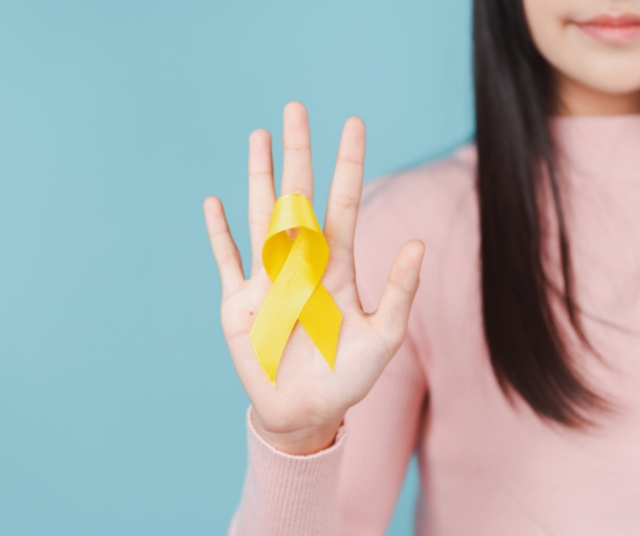World Suicide Prevention Day , observed each year on September 10, is a somber reminder of the profound importance of tackling one of the world's most pressing mental health issues. This day serves as a call to action to raise awareness about suicide, its underlying causes, and ways we can work together to prevent it. As we approach another commemoration of this pivotal day, it is essential to reflect on the progress made so far and consider future strategies to create a world where every life matters and is supported.
The Deep Meaning of World Suicide Prevention Day
Suicide is a global public health problem that affects people of all ages, genders, and cultures. Behind the numbers are personal stories and broken families, highlighting the urgency of addressing this issue compassionately and seriously. World Suicide Prevention Day is a joint effort to dispel the stigma associated with mental health and encourage an open dialogue in our communities about this sensitive issue.
World Suicide Prevention Day 2023 theme: "Connect to Heal"
The theme for World Suicide Prevention Day 2023, " Connect to Heal ", focuses on the powerful influence that meaningful and caring human connections can have on suicide prevention and mental health promotion. This theme recognizes the fundamental importance of empathy, support and mutual understanding in combating suicide and empowering people facing emotional challenges. The "Connect to Heal" theme emphasizes several key aspects:
- Reduced Isolation: One of the important risk factors for suicide is the feeling of isolation and loneliness. Connecting with other people can help counteract this feeling, giving people a support network during difficult times.
- Fostering Open Communication: Talking about mental health issues and suicide is essential to destigmatize these issues. Meaningful connections can create a safe environment where people feel comfortable sharing their thoughts and feelings without fear of judgment.
- Emotional Support: The presence of understanding and supportive people can provide invaluable emotional support for those who are struggling with suicidal thoughts or mental health issues. Knowing that there is someone willing to listen and offer help can make a significant difference.
- Creating Hope: Connecting with others can bring hope to those who feel hopeless. Seeing examples of people who have overcome similar challenges and found ways to heal can inspire a more positive outlook for the future.
Activities and Approaches
To celebrate World Suicide Prevention Day under this theme, various activities and approaches can be carried out:
- Awareness Events: Host talks, webinars, workshops, and community events that focus on the importance of human connections in suicide prevention. These events can provide information on how to support those at risk and how to foster a supportive environment.
- Overcoming Stories: Sharing stories of people who have overcome suicidal thoughts or experienced healing through connection and emotional support. These stories can offer inspiration and encouragement to others facing similar challenges.
- Social Media Campaigns: Use social media platforms to spread the message of the "Connect to Heal" theme. Publish educational content, motivational quotes, and support resources to reach a broader audience.
- Creating Safe Spaces: Establish safe spaces in communities, schools, and workplaces where people can speak openly about their struggles and seek support without fear of lawsuits.
- Support Groups: Facilitate in-person or online support groups where people can connect with others who share similar experiences. These groups offer a space to share, learn and heal together.
- Collaborations and Alliances: Work collaboratively with mental health organizations and professionals to amplify the message of the importance of human connections in suicide prevention.
Current Challenges in Suicide Prevention
Despite advances in mental health awareness, we still face significant challenges in suicide prevention. Limited access to mental health services, a lack of understanding and persistent stigma are barriers that make it difficult for people to seek help when they need it. Furthermore, the COVID-19 pandemic has exacerbated many of these problems, increasing emotional distress and isolation around the world.
Prevention and Support Strategies
Education and Awareness
Public education is critical to suicide prevention. It is essential to dispel myths and misunderstandings about mental health and suicide, and to provide accurate information on warning signs and ways to support those at risk. Awareness campaigns online, in schools and in communities can help spread awareness and encourage open dialogue.
Access to Mental Health Care
Ensuring adequate and affordable access to mental health services is essential. Governments and health organizations must work together to remove the economic and geographic barriers that prevent people from receiving the support they need. Telemedicine and online platforms can also be valuable tools for reaching people who may not otherwise be able to access care.
Promotion of Emotional Well-being
Fostering resilience and emotional well-being from an early age can have a positive impact on suicide prevention. Schools can implement programs that teach coping skills and promote a supportive environment. Businesses can also play a role by providing wellness resources and programs for their employees.
Survivor Support
Those who have lost loved ones to suicide need ongoing support. Support groups and specialized resources can help survivors cope with their grief and find ways to heal. By connecting survivors with others who have been through similar experiences, a safe space can be provided to share and heal together.
